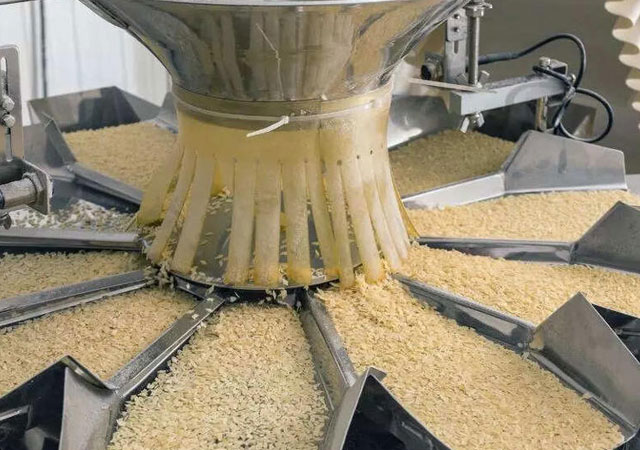 Thai farmer Daeng Donsingha was already worried for her family of nine when rice prices in the world’s second-largest exporter of the staple crashed this year after India resumed exports.
Thai farmer Daeng Donsingha was already worried for her family of nine when rice prices in the world’s second-largest exporter of the staple crashed this year after India resumed exports.
Now, she is also fretting over the tariffs unleashed by US President Donald Trump, which could slash demand for Thai rice in its most valuable foreign market and create turmoil in an export industry worth billions of dollars.
“The problem is that the price of rice is very low, while other costs such as fertilisers and farmland rent is higher,” the 70-year-old farmer said, after selling her harvest at a rice mill in central Thailand. “I’m losing money.”
Thailand is among Southeast Asian nations hardest hit by Trump’s proposed measures, facing a 36 per cent tariff on goods unless ongoing negotiations are successful before the US president’s moratorium on the tariffs ends in July.
“If the US imposes the tariff, our jasmine rice will be too expensive to compete,” said Chookiat Ophaswongse, honorary president of the Thai Rice Exporters Association.
Last year, Thailand shipped 849,000 tonnes of rice to the United States, mainly of its most expensive fragrant jasmine variety, worth 28.03 billion baht (US$735 million), according to the association.
In all, Thailand exported 9.94 million tonnes of rice in 2024, worth 225.65 billion baht (US$6.82 billion), with the US as its third-largest market by volume, but most lucrative.
Potential US tariffs would stall exports and hand the advantage to Thailand’s main regional competitors, like Vietnam, where prices are significantly lower, said Chookiat, whose association is targeting exports of 7.5 million tonnes this year.
“From US$1,000 per tonne, the price would rise to US$1,400 to US$1,500,” he said. “Importers will shift to Vietnamese jasmine rice, which is only US$580 per tonne.”
Rice from Vietnam is cheaper because production costs are lower, farmers grow different varieties of the crop and bring in multiple harvests.
Farmers in Thailand, Southeast Asia’s second-largest economy, have already been on edge because of a 30 per cent drop in domestic prices after India resumed exports in September. The country accounted for 40 per cent of world rice exports in 2022 before the ban was introduced.
Analysts said there is no room for Thailand to cut prices to compete.
“Our production costs are high, while our yield is low,” said Somporn Isvilanonda, an independent agricultural economist. “If we dump prices, farmers won’t survive.”
The industry and farmers are pinning their hopes on negotiations between a Thai delegation led by Finance Minister Pichai Chunhavajira and the US.
Rice shipments, however, are already sliding. Overall exports fell 30 per cent in the first quarter as countries delayed buying decisions and India’s return boosted supply, according to the exporters association, forecasting a similar decline over the next three months.
The concessions Thailand is proposing to counter Trump, including bringing tariffs of US corn down from 73 per cent to zero, would also hurt Thai farmers, according to industry groups.
A flood of cheap imported corn could further depress prices of broken rice and rice bran, which are extracted during rice milling and used in animal feed, said Banjong Tangchitwattanakul, president of the Rice Millers Association.
On April 8, four farm groups, including rice millers, petitioned the government to block imports of US corn and soybean meal, arguing they would squeeze prices of domestic crops for animal feed, according to a copy of the letter seen by Reuters.
The government has pledged that any concession it makes in negotiations with the US will not undermine domestic industries.
But for farmers like Daeng, decisions made halfway across the world could jeopardise her livelihood.
“My children have been following the news,” she said, “They were telling me that ‘we won’t be able to survive, mum, if things go ahead like this.’”














© Copyright 2025 The SSResource Media.
All rights reserved.